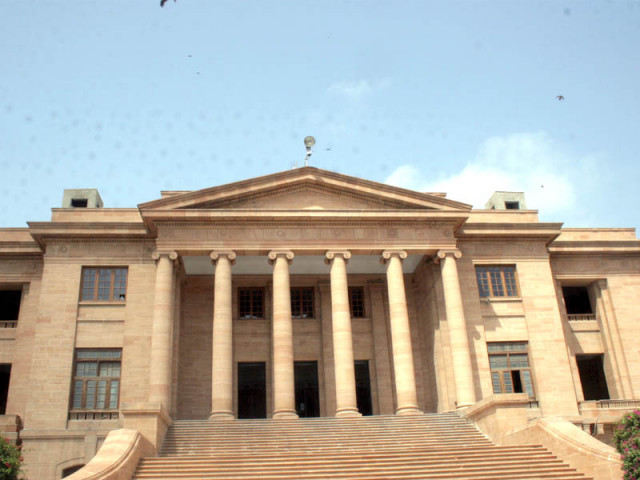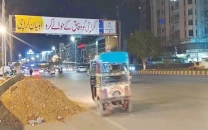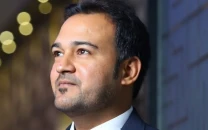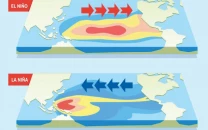Home dept argues against making JIT reports public
Informs SHC that it could adversely affect prosecution of criminals

PHOTO: EXPRESS
Filing comments on a petition seeking publication of the reports prepared by the joint investigation teams (JITs) regarding high-profile criminal activities, the home secretary argued that the investigations of criminal cases are carried out under the relevant provisions of the Code of Criminal Procedure, 1898.
"[Disclosure of JIT reports may] jeopardise the whole process of investigation, prosecution and fair trial as information obtained from one source could be countered or altered from another source like forensic evidence, etc," the secretary maintained, adding that it could also be misused by any person to the detriment of the canons of justice and fair play.
The home secretary argued that the case of Baldia factory fire was under trial in the competent court of law. He said the report of the investigation officer submitted to the trial court forms the basis of the case of the prosecution, adding that the information, if any, other than that, does not carry the status of prosecution's case.
SHC takes notice of 'unusual punishments' awarded by Karachi courts
He maintained that only report of the criminal case submitted by the investigation officer (challan) is a public document. "The recordings of the JIT may at times not be substantiated by other valid investigation measures or reports or statements," the secretary argued.
"Therefore, making them public might jeopardise the court proceedings and adversely affect the society's (state's) endeavour to prosecute and get the criminals convicted by the court of law through a just process of the law," the secretary argued.
He argued that the contents of the petition were based on hearsay and public rhetoric without any semblance of evidentiary value. The contention of the petitioner is not covered by the law, he added.
However, it was maintained that if any other plea was made, then the home secretary may be given due time and chance to submit his version. Therefore, the court was pleaded to dismiss the petition being baseless and devoid of merit.
Courts shut down due to widespread protests
Additional Advocate-General Ghulam Mustafa Mahesar contended that the petitioner had no locus standi to file the petition as he was not an aggrieved party in those high-profile cases. He alleged that the petitioner, Pakistan Tehreek-e-Insaf (PTI) leader Ali Haider Zaidi, had filed the petition for a publicity stunt.
On the other hand, the petitioner's lawyer, Barrister Omar Soomro, argued that the Punjab government had also taken a similar stance in the case relating to the publication of the report of judicial inquiry into the Model Town incident. However, the Lahore High Court rejected the government's stance and ordered the government make the findings public and ultimately the same was done.
Soomro said the petitioner's only contention was to publicise the reports of the JITs formed to probe into the Baldia factory fire incident, and crimes of former Lyari kingpin Uzair Jan Baloch and former chief of Pakistan Fishermen Cooperative Society Nisar Morai.
A two-judge bench, headed by Justice Naimatullah Khan, directed the lawyers of both the parties to advance their arguments on the next date of hearing, which was fixed for December 20.
Case history
Zaidi had approached the court against the provincial chief secretary for not providing reports compiled by the JITs that had investigated the Baldia factory fire incident, alleged crimes of Uzair and cases against Morai, under the Sindh Transparency and Right to Information Act, 2011.
SHC seeks record of SIUT's Sukkur hospital
In October, the police had filed a confessional statement of Uzair recorded before a judicial magistrate, in which he had made startling disclosures of committing criminal activities in connivance with the senior leadership of the Pakistan Peoples Party (PPP) and police officers.
The gangster had named former president and PPP Co-Chairperson Asif Ali Zardari, his sister MNA Faryal Talpur, Senator Yousuf Baloch, former senator Faisal Raza Abidi, former provincial minister Sharjeel Inam Memon, former Karachi city police chief Waseem Ahmed, SSP Farooq Awan, his brother Prosecutor-General Shahadat Awan, and others as his collaborators in the statement.
In the petition, Zaidi argued that the Sindh Transparency and Right to Information Act, 2011 had been passed by the Sindh Assembly, which granted him the right to obtain information in line with the Act. The PTI leader claimed that he requested the chief secretary multiple times to provide copies of the JIT reports but the respondent failed to provide the required information.
The petitioner, represented by Barrister Soomro, said families of the victims of the Lyari gang war, Baldia factory fire and those aggrieved by crimes committed by Morai deserved justice. However, due to the concealment of the JIT reports, the families were unaware of the culprits involved in these crimes.
Police 'encounters’ in Karachi need to be thoroughly investigated: SHC
"The publication of the JIT reports is important to ensure that the true culprits are not able to evade justice," Zaidi argued, citing that the print and electronic media had reported that during investigations, the JITs obtained evidence of the involvement of various politicians in these crimes.
The PTI leader argued that it was imperative that the politicians involved in crimes are brought to the book. However, he apprehended that as long as the JIT reports were kept secret, the involvement of these politicians in crimes will not be known to the public, leaving the politicians to quietly exercise their influence and quash any investigation launched against them.
"The publication of the JIT reports is important as there are allegations that state machinery was utilised to commit and cover up crimes and the people have a right to know if public resources were used for this purpose," Zaidi argued.
The petitioner also said that the very purpose of constituting JITs, which were formed to uncover the truth of these crimes, will be defeated if the reports were not released.
Court seals Model Colony police station
He informed the court that the precedence of making investigation reports public had been set by the Lahore High Court, which had, on September 21 this year, ordered the report of Justice Ali Baqar Najfi on the Model Town massacre in Lahore to be made public.
It was also argued that the failure of the Sindh authorities to make the JIT reports public was a violation of the right to information guaranteed under Article 19-A of the Constitution.


















COMMENTS
Comments are moderated and generally will be posted if they are on-topic and not abusive.
For more information, please see our Comments FAQ